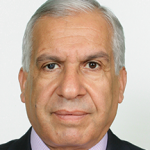In spite of the fact that demand for water and electricity in the West Bank (WB) has increased sharply over the past decade, local providers of those services are suffering from continuous fiscal deficits. However, the collection efficiency of bills paid for water and electricity consumption is still below international standards. The main objective of this study is to assess the main factors behind the willingness and ability of Palestinian households to pay the bills for the two public utilities: Water and Electricity in the WB. The big gap between the value of actual consumption of these utilities and that of household expenditures regarding these two utilities through payment of bills, calls for an analysis of such household behavior. To achieve this objective, the degree of willingness and ability model have both been developed and estimated. The decision made by a household which has the willingness and / or the ability to pay his/her bills, following the elapse of a specific period of water or electricity consumption, was specified in a two equation model. Since the values of the dependent variables in the model are coded from 0 - 5, the equations in the model are called “ordered probit model”. Consequently, they were estimated using the maximum likelihood procedure. The empirical results of the estimated model indicate a set of personal, economic, social and legislative variables which are the major determinants behind household behavior towards payment of bills. Therefore, both providers and consumers should cooperate in the adoption and implementation of steps to improve the collection efficiency of bills. Furthermore, certain types of support packages should be carried out by the providers of water and electricity services in order to increase efficiency in running public utilities in the WB.
ملخص
على الرغم من حقيقة أن الطلب على المياه والكهرباء في الضفة الغربية قد زاد بشكل حاد على مدى العقد الماضي ، الا ان مقدمي تلك الخدمات المحليين يعانون من العجز المالي المستمر. ومع ذلك، فإن كفاءة تحصيل الفواتير المدفوعة لاستهلاك المياه والكهرباء لا تزال دون المعايير الدولية . الهدف الرئيسي من هذه الدراسة هو تقييم العوامل الرئيسية وراء استعداد وقدرة الأسر الفلسطينية لدفع الفواتير المرافق العامة لمدة محددة: الفجوة الكبيرة بين قيمة الاستهلاك الفعلي لهذه المرافق وذلك من نفقات الأسر بشأن هذين المرفقين من خلال دفع الفواتير يدعو إلى تحليل مثل هذا السلوك المنزلي . ولتحقيق هذا الهدف ، على حد سواء فقد وضعنا نمذجا لقياس درجة الاستعداد و القدرة. تم تحديده في القرار الذي تتخذه الأسرة التي لديها الاستعداد و / أو القدرة على دفع الفواتير ، وبعد مرور فترة محددة من الماء أو استهلاك الكهرباء ، يتم ترميز قيم المتغيرات التابعة في نموذج 0-5 ، وتسمى المعادلات في نموذج " نموذج الاحتمالية" . ونتيجة لذلك ، تم تقديراستخداملتهم باستخدام إجراء احتمال الحد الأقصى . النتائج التجريبية للنموذج المقدر تشير إلى وجود مجموعة من المتغيرات الشخصية والاقتصادية والاجتماعية والتشريعية والتي تمثل المحددات الرئيسية وراء السلوك المنزلي نحو دفع الفواتير. ولذلك ، يجب على مقدمي الخدمات و المستهلكين التعاون في اعتماد وتنفيذ الخطوات اللازمة لتحسين كفاءة تحصيل فواتير . وعلاوة على ذلك ، ينبغي إجراء أنواع معينة من حزم الدعم من قبل مقدمي خدمات الكهرباء و المياه من أجل زيادة الكفاءة في تشغيل المرافق العامة في الضفة الغربية .

Research Fellows
Mahmoud El Jafari
Professor of Economics, AlQuds University


